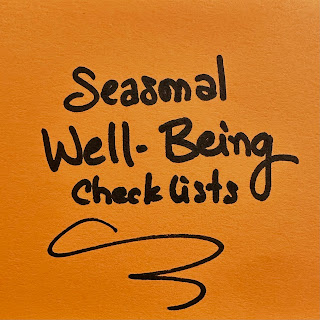Often the statement is said, “MS took from me...(fill in the blank)…” Multiple Sclerosis takes a lot physically and emotionally, and it is frustrating and depressing. There’s no getting around the ongoing loss and grieving process of living with a chronic and progressive illness. It deserves acknowledgement and shouldn’t be minimized or dismissed. Being optimistic and living well with MS demands immense resilience and coping skills. It also benefits from accommodations and adaptive technology. While often described and prescribed for work and personal grooming, accommodations that support ongoing participation in hobbies are especially joy inducing. They help reduce or perhaps delay some things on the long list of things that MS took from a person.
Accommodations are crucial for how they can make an activity rewarding and fulfilling instead of a reminder of how much we can’t do anymore. Thinking about what makes an activity difficult will help determine which accommodations would be useful for an individual.
Sometimes looking at potential solutions will help zero in on the barrier. Seeing what’s possible can bring an “aha moment” for why something feels too burdensome to undertake anymore. This can help with the task of designing accommodations around you and your unique issues and preferences.
Helpful online search terms include disability accommodations, assistive technology and adaptive tools coupled with your hobby.
There are many tools that will help reduce dexterity demands, potential for injury and cognitive exertion. If they are easier to use, safer to use and easier to understand, they may accommodate a difficulty caused by MS Symptoms. The goal is to make the activity enjoyable and doable again.
For issues with Energy Exertion, consider time of day, duration, body position, and movements required of the task. For Dexterity Limitations, think about tools designed to use leverage, improve stability, and enhance safety. For Cognitive Overload, explore organization of the space, visibility of tools and supplies, and reducing the number of decisions needed throughout the activity. Each of these issues may benefit from different accommodations, and you are ultimately the best judge of what might help you.
Accommodations can be liberating for supporting continued ability to do things we love in some capacity. While assistive technology is geared toward people with disabilities, some items come in the form of an indulgence or specialty item for those most enthusiastic about a hobby.
Learning about MS and accommodating MS symptoms can be a full-time job. If thought of as a portion of a wellness interest or effort to help me continue doing things I love, it’s less emotionally triggering for the damage MS has done to my body or may do in the future. While not a traditionally thought of hobby, my focus on wellness and living well with MS definitely qualifies as a hobby. Researching, applying wellness information to my own health, journaling and writing a blog are all things I’m compelled to do in my free time that help me feel a sense of fulfillment.
My laptop and smart phone are helpful devices for learning and writing. I can make myself physically comfortable while using them better than I can using a desktop computer. I can sit or lie down on the sofa while writing and learning. These accommodations help me be able to do this hobby.
Drawing and painting used to be a favorite hobby of mine. With MS, my ability to control my hands and brush strokes has diminished. If I take it up again someday, I know I would benefit from a leaning bridge. Designed for drawing on horizontal surfaces, a leaning bridge spans artwork and allows the artist to rest their hand above the artwork. For easel use, there are products that use a rail affixed to the top of the easel and a Mahl stick hangs and slides to allow use over the full canvas.
Another hobby I enjoy and greatly benefits from accommodations is cooking. Over the years, the time I spend creating in the kitchen has fluctuated based on my MS symptoms and life demands. Fatigue discourages expending extra effort for nonessential tasks. The effort required can often be more than I’m up for undertaking when MS fatigue and spasticity pain overtake me. When feeling poorly due to MS, it’s exactly when joy from a hobby would serve my mental health all the more.
There is an abundance of accommodation options for cooking, and it’s a terrific example to use for a deep dive on accommodation methods and equipment. Counter seating and a comfortable stool are good for stationary tasks and rest breaks. Kitchen appliances useful for gourmet fare are kind to a person budgeting their energy. Some are reasonably affordable and others are crazy pricy. Combination crock pot/pressure cooker/air fryer appliances reduce the amount of time needed to monitor the stove. Sous vide cooking in a water bath allows for long unmonitored cooking time as well. Automated mixers exist that will stir a pot while cooking. Food processors help with safely cutting vegetables and mixing.
Utensils designed for comfortable gripping are worth researching to maximize ease of use and meet personal preference. Silicone mats, trivets and coated bowls keep cutting boards and bowls from sliding and offer close options for moving hot dishes.
Things that don’t require unscrewing a lid or using both hands to use are helpful. Olive oil bottles can be decorative and don’t require removing a cap. Gravity activated electric pepper and salt mills allow for fresh ground seasonings with a single-handed movement without buttons to press or extra effort.
Anything that helps with clean up can minimize barriers to cooking. Touchless soap dispensers are good for handwashing. An electric dishwasher or human in the house willing to clean up helps reduce energy needed. They also make it less of an impediment to using equipment that is difficult to clean by hand.
Think about foods you like and want to make repeatedly, and store everything needed to make and serve them together. Dedicating a single location for coffee, filters, hot water kettle and tea allows for making them without accessing multiple areas of the kitchen. The same goes for popcorn in my home. A shelf in the cupboard next to the microwave holds the popcorn maker, popcorn, the bowl for serving. Olive oil and salt are within reach as well, and no extra steps or cupboard access are needed.
To someone without any health issues, the suggestions mentioned here could seem absurd. All of these tasks don’t take a lot of effort for them. Given my MS fatigue and pain, combining all of these suggestions creates an environment that shifts my attitude toward cooking from a burden to a joy. These accommodations allow me to keep enjoying my hobbies, and my hobbies help me combat stress and enjoy life.
Hobbies are not just for those who can do them easily, and doing things differently than we used to do them is not failure. Accommodations are liberating and necessary when they keep us doing what we love.












